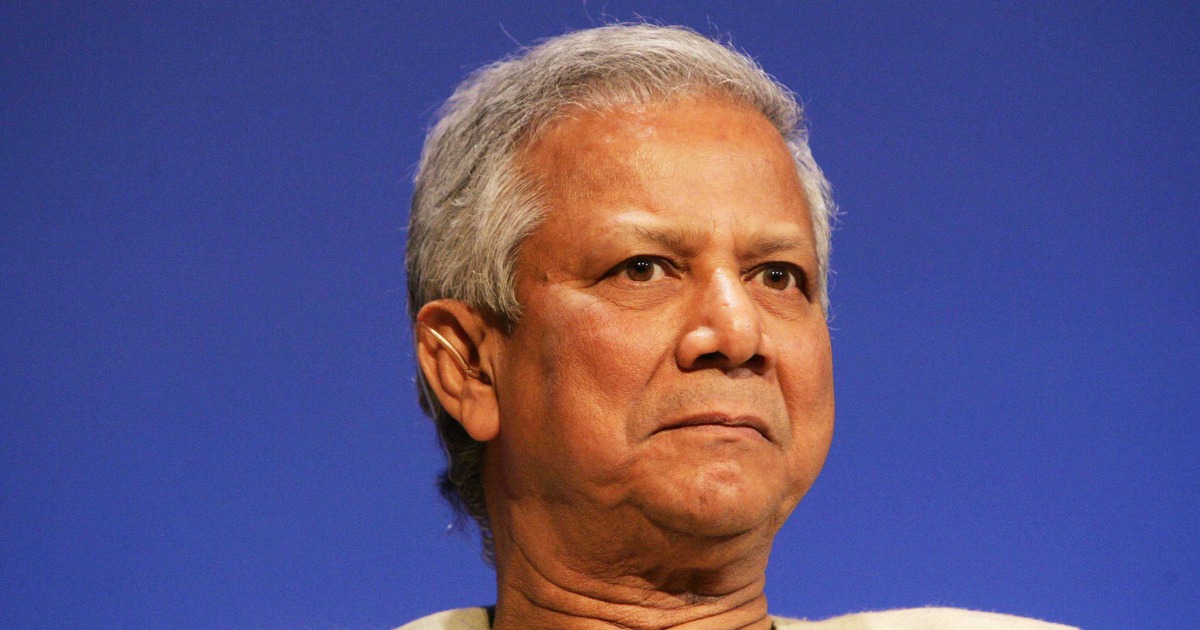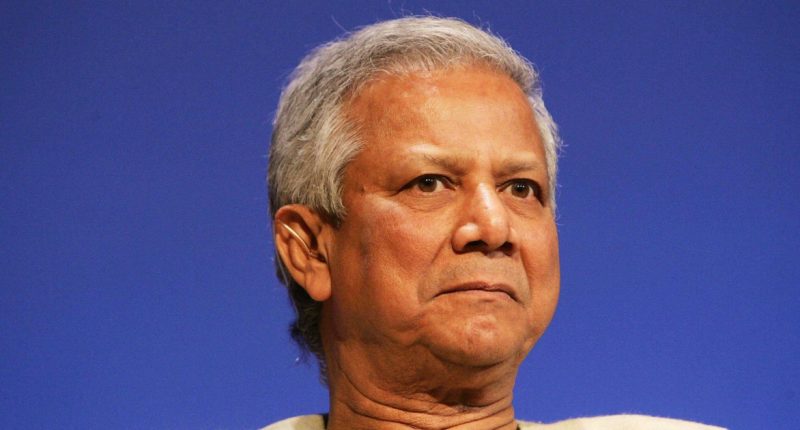
Its signatories included former United Nations Secretary-General Ban Ki-moon, former Secretary of State Hillary Clinton and former President Barack Obama, who in 2009 awarded Yunus the Presidential Medal of Freedom, the highest U.S. civilian honor.
In a letter to Hasina in January, 12 U.S. senators also urged an end to what they called “persistent harassment” of Yunus and “the pattern of abusing laws and the justice system to target critics of the government more broadly.”
Officials in Bangladesh say the country has an independent judicial system and that critics abroad are interfering inappropriately.
“The signatories to the letter would be well advised to counsel Dr. Muhammad Yunus to operate within the bounds of law in lieu of making unjustified insinuations about Bangladesh’s democratic and electoral processes,” the Ministry of Foreign Affairs said in September, in response to the letter from the Nobel laureates.
Bangladesh, a Muslim-majority parliamentary democracy of 170 million people, is the world’s eighth-most-populous country and one of its least developed. Last year, it ranked 127th out of 142 countries in the World Justice Project’s Rule of Law Index, and its score has been steadily decreasing.
“We need to see what is happening to Dr. Muhammad Yunus in that broader trajectory and in that broader context of how the judiciary is being weaponized to crush the opposition,” said Mubashar Hasan, a postdoctoral research fellow at the University of Oslo in Norway and an adjunct fellow at Western Sydney University in Australia.
The January election won by Hasina, 76, and her Awami League was boycotted by the opposition and criticized by the State Department as neither free nor fair. Bangladeshi election officials said voter turnout was about 40%, compared with more than 80% in the last election in 2018.
In the months before the election, tens of thousands of leaders and members of the opposition Bangladesh Nationalist Party were arrested, and at least two people were killed in anti-government protests.
Hasina has played down the opposition boycott and said the election was neutral.
NBC News has reached out Bangladesh’s Ministry of Foreign Affairs for comment on both Yunus’ legal charges and the claims of election interference.
‘This is where I grew up’
Yunus, who had been teaching at Middle Tennessee State University, returned to Bangladesh after it gained independence in 1971. In 1983, he founded Grameen Bank, which gave small, long-term loans on easy terms to low-income individuals, especially women, so they could start their own businesses, a concept known as microcredit.
The hope was that such loans, which have now spread around the world including in the United States, could be used to help eradicate poverty, though results have been mixed.
Since returning to power in 2009, Hasina has attacked Yunus continuously, calling him a “bloodsucker” of the poor and accusing Grameen Bank of charging them exorbitant interest rates.
Yunus denied that his organization had engaged in abusive practices and said there was a difference between “right microcredit” and “wrong microcredit,” in which companies charge high interest rates.
Microcredit “should be done as a social business, not a profit-making business,” he said.
Hasan said Hasina might also see a potential rival in Yunus, who in 2007 announced plans to start a political party to battle corruption before abandoning the idea later that year. Yunus said Thursday that he “never wanted to be in politics.”
The only reason Hasina might view him as a political threat, Yunus said, is that “she sees that I’m very popular among the people because I’ve worked for them and I’ve visited almost every village in the country doing my work.”
After Hasina’s re-election in January, her government “may go harder” against Yunus, said Hasan, an author of two books on Bangladeshi politics. Last month, Yunus said, several of his companies were forcefully occupied by “outsiders” for multiple days and police refused to help.
“They have at least four more years to unquestionably rule the country,” Hasan said. “That is not good news for Dr. Muhammad Yunus, for the opposition, for human rights activists and democracy activists.”
Though friends in the United States and elsewhere have urged him to leave Bangladesh, Yunus says that is not an option “because this is where I grew up.”
He said he was also concerned for the people he works with.
“If I go, what happens to them? They will be in jail,” he said. “And I’ll blame myself — ‘Why did I leave them to be in jail while I’m enjoying life in another country?’”
Source: | This article originally belongs to Nbcnews.com









